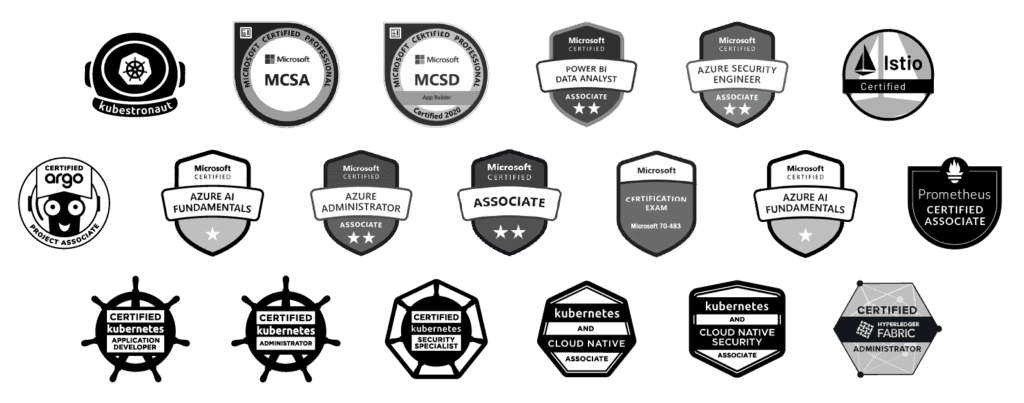K3s and other lightweight container orchestration solutions are quickly gaining traction among developers and system administrators working with distributed systems.
Introduction
K3s is a lightweight Kubernetes distribution developed by Rancher Labs that aims to be easy to install, requiring only a single binary without any external dependencies. Its design goal is to cater to edge and IoT use cases, where minimal resource consumption is paramount.
Key Features of K3s
01. Simplified Kubernetes: K3s has removed legacy, alpha, and non-default features from standard Kubernetes to reduce its size.
02. Automatic Load Balancer: K3s includes an in-built SQLite database, eliminating the need for an external datastore.
03. Edge-focused: Being lightweight, it’s well-suited for edge computing scenarios and IoT environments.
02. Automatic Load Balancer: K3s includes an in-built SQLite database, eliminating the need for an external datastore.
03. Edge-focused: Being lightweight, it’s well-suited for edge computing scenarios and IoT environments.
Other Lightweight Container Orchestration Solutions
Docker Swarm
A native clustering system for Docker. It turns a pool of Docker hosts into a single, virtual host.
Ease of Use: Docker Swarm’s main advantage is its simplicity and tight integration with the Docker ecosystem.
Nomad
Developed by HashiCorp, Nomad is a flexible orchestrator that can manage both containerized and non-containerized applications.
Diverse Workload: It’s designed to manage diverse workloads and is extensible.
MicroK8s
MicroK8s is a lightweight, snap-installed Kubernetes distribution from Canonical, designed for simplicity and ease of use. It is optimized for rapid setup and supports a wide array of add-ons, making it an excellent choice for small scale deployments, IoT devices, and development environments.
Its low resource footprint and ability to run on a variety of Linux distributions make it a valuable alternative for lightweight container orchestration, particularly in scenarios where minimal overhead is essential.
A native clustering system for Docker. It turns a pool of Docker hosts into a single, virtual host.
Ease of Use: Docker Swarm’s main advantage is its simplicity and tight integration with the Docker ecosystem.
Nomad
Developed by HashiCorp, Nomad is a flexible orchestrator that can manage both containerized and non-containerized applications.
Diverse Workload: It’s designed to manage diverse workloads and is extensible.
MicroK8s
MicroK8s is a lightweight, snap-installed Kubernetes distribution from Canonical, designed for simplicity and ease of use. It is optimized for rapid setup and supports a wide array of add-ons, making it an excellent choice for small scale deployments, IoT devices, and development environments.
Its low resource footprint and ability to run on a variety of Linux distributions make it a valuable alternative for lightweight container orchestration, particularly in scenarios where minimal overhead is essential.
Comparative Analysis
01. Performance: K3s tends to outperform other solutions in edge scenarios due to its minimized footprint. However, for large-scale deployments, solutions like Docker Swarm might be more suitable. K3s is often preferred over MicroK8s for edge computing and IoT scenarios due to its ultra-lightweight architecture, requiring fewer resources, which is critical in environments with limited computational capacity.
02. Community & Support: Kubernetes (and by extension K3s) boasts a vast community, ensuring a plethora of plugins, integrations, and support. Docker Swarm, Nomad, and MicroK8s, while having their dedicated communities, aren’t as vast as Kubernetes.
03. Flexibility: While K3s focuses on lightweight Kubernetes deployment, Nomad provides flexibility in handling various types of workloads.
Choosing Veritas Automata as your K3s provider offers several distinct advantages when building a distributed architecture:
Choosing Veritas Automata as your K3s provider offers several distinct advantages when building a distributed architecture:
04. Expertise in Lightweight Solutions: Veritas Automata has a proven track record in optimizing lightweight container orchestration solutions, ensuring minimal overhead and maximized performance for distributed systems.
05. Tailored for Edge Computing: With the increasing importance of edge and IoT applications, Veritas Automata’s specialization in K3s makes it a prime choice for deployments that require rapid response and localized decision-making.
06. Seamless Integration: Veritas Automata ensures that K3s integrates smoothly with existing systems and tools, simplifying the deployment process and reducing the time-to-market for applications.
07. Robust Support & Community: Leveraging a broad community of experts and offering robust support mechanisms, Veritas Automata ensures that any challenges in deployment or operation are swiftly addressed.
08. Cost-Effective: By focusing on lightweight solutions that don’t compromise on capabilities, Veritas Automata offers a cost-effective solution for businesses of all sizes.
Veritas Automata is the differentiator. K3s is a lightweight Kubernetes distribution optimized for edge and IoT devices due to its minimal resource requirements. Its design simplifies cluster setup, promoting rapid deployment and scaling. The platform integrates essential tools and ensures security with automatic TLS management.
Additionally, K3s’s compatibility with the Kubernetes ecosystem and its resource-efficient nature make it a cost-effective solution for businesses.











